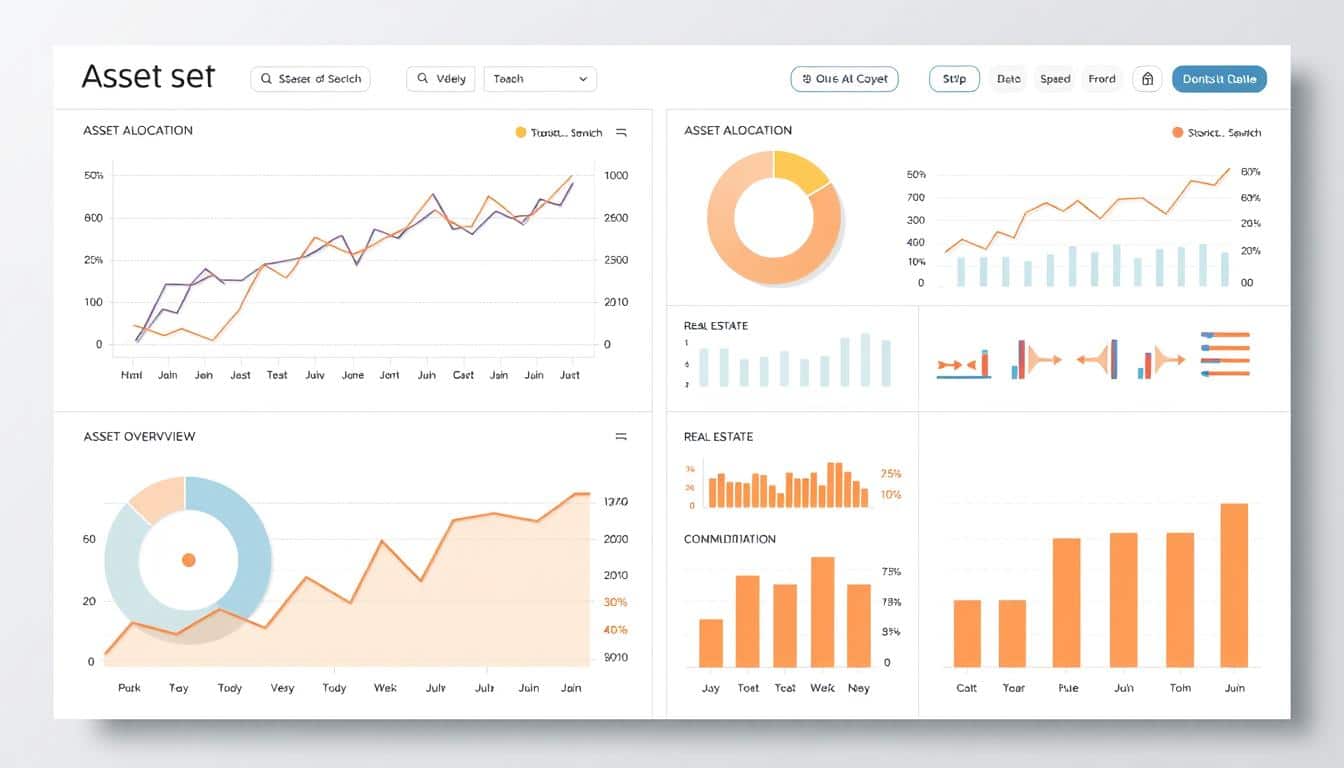Effective tax planning is key in today’s ever-changing financial world. It helps lower your taxes and makes money matters clearer. By reducing taxable income, it lets both individuals and businesses grasp tax laws better.
We’re going to talk about the importance of tax planning, its perks in saving money, and how financial advisors are crucial. They play a big part in making and carrying out these tax plans.
Anúncios
Understanding the Importance of Tax Planning
Tax planning is crucial for both individuals and businesses seeking financial security. It ensures you follow tax laws and helps reduce what you owe in taxes. With a good tax plan, you can prevent expensive mistakes and get ready for future taxes.

Choosing the right time for income and expenses is key to managing your money well. By understanding your financial situation, you can use all the tax deductions and credits you’re allowed. Having a tax plan that fits your financial goals leads to success and stability in the long run.
- Enhances compliance with regulations
- Reduces overall tax burden
- Improves cash flow management
- Aids in strategic financial decision-making
Tax planning is a crucial support in building a strong financial future. A clear plan helps individuals and businesses deal with tax rules while achieving their money goals.
How Tax Planning Can Save You Money
Tax planning helps save money by making smart choices about deductions. By using tax deductions wisely, you can significantly reduce your taxable income. Knowing which deductions fit your finances is key to saving more money all year.
Being proactive in tax planning means looking for deductions and deciding how to manage your money. For example, putting money into retirement or health savings accounts can cut your taxes now. Making these moves at the right time can save you a lot of money later on.
Also, understanding how different financial actions impact your taxes can help you keep taxes low. This includes choosing investments that are tax-smart and dealing with potential gains or losses wisely. Being informed about taxes leads to a smart money strategy and big savings over time.
The Role of a Financial Advisor in Tax Planning
A financial advisor plays a key role in tax planning. They offer special knowledge to help clients deal with complex tax laws. This helps individuals grasp their investment strategy better.
Financial advisors review different investment options to show the tax effects of each. This review helps clients match their investments with their big money goals. Advisors give important advice about how to own businesses, trusts, or partnerships too.
Getting help from a financial advisor for tax planning means getting a custom plan. This plan aims to increase returns while keeping taxes low. A smart investment plan not only keeps wealth safe but also grows financial security by wise tax handling.
Key Elements of Effective Tax Planning
Effective tax planning is key for anyone looking to improve their money management. Knowing current tax laws well is the first step to better managing taxes. This knowledge helps people and companies spot chances and risks.
Key elements include:
- Structuring Investments Wisely: Choosing the right investment methods can greatly reduce tax costs.
- Risk Management: Being ready for personal or business changes that impact tax amounts is crucial for a good tax plan.
- Regular Evaluations: Always checking tax plans makes sure they fit with changing goals and rules.
Staying up to date with tax rule changes is vital. Without this knowledge, people could miss out on ways to enhance their financial situation.
The Complexities of Investment Tax Strategy
Investment tax strategy has many parts, all affecting how your investments are taxed. Knowing the tax side of different investments is key. This helps people grow their money while keeping taxes low. Things like how long you hold an asset matter a lot.
Understanding Tax Implications of Investments
Each investment has its own tax rules. For example, keeping an investment for a long time usually means lower taxes than selling it quickly. Knowing this can really shape how you invest. Taxes on things like dividends and interest also affect your final earnings.
Evaluating Different Investment Options
When planning your tax strategy for investments, look closely at all your options. This means thinking about how tax-loss harvesting can balance gains with losses. Important things to think about include:
- The type of asset (stocks, bonds, mutual funds)
- Holding periods and their corresponding tax rates
- The overall market conditions affecting asset performance
Getting what each investment can mean tax-wise helps in making choices that benefit your finances.
Common Tax Planning Mistakes to Avoid
Many people miss important details when planning taxes. One big mistake is not claiming all the deductions you can. This oversight can increase what you owe in taxes. Another mistake is not reporting all your income, which can lead to fines.
Forgetting to contribute to retirement accounts is also a mistake. It can affect your savings in the future. In addition, poor record-keeping can make tax filing harder and increase the chance of mistakes. Putting off filing your taxes can cause stress and lead to lost saving opportunities.
It’s crucial to understand how your actions affect your taxes. Keeping good records and knowing tax laws are key. This way, you can avoid common mistakes and save money.
Benefits of Outsourcing Tax Preparation Services
Businesses gain big when they outsource tax prep tasks. They get better efficiency and spend less money than having their own tax staff. Specialized tax firms offer custom packages. This means companies pay only for what they need.
Cost vs. In-House Accounting
Outsourcing saves on the cost of salaries, benefits, and training for staff. It’s a smart way to cut costs. Here’s why:
- It reduces the overhead of hiring full-time employees.
- The payment structures adapt to your service needs.
- It grants access to expert advice without long-term hires.
Ensuring Compliance with Changing Regulations
Tax laws change fast, which can be tough for businesses. Outsourcing offers expertise on current laws, reducing audit and penalty risks. It helps companies stay in line with laws.
- Professionals keep up with law changes, offering specific insights.
- There’s a smaller chance of mistakes that can cause audits.
- It brings peace of mind, knowing experts manage your taxes.
Staying Organized: Document Management for Tax Planning
Good tax planning needs careful document management. It’s key for people and companies to keep their financial records in order. This makes tax time smoother and less stressful.
It’s common to lose track of documents, causing delays. But, having a good system helps avoid these problems. There are many tools out there to keep records in check.
Digital methods make managing finances easier. They let you get to your documents fast, so nothing gets lost. Keeping your financial records up-to-date helps avoid troubles and sticks to tax laws.
Creating a Personal Tax Strategy
Making a personal tax strategy is key to handling your money well. It means looking at your income, deductions, and taxes. By planning your taxes this way, you make sure it fits your financial goals. This leads to saving the most money legally.
A good tax strategy changes when needed. You should update it for new laws, changes in your income, or big life changes. Events like getting married, changing jobs, or having a baby affect your taxes and require a fresh look at your plan.
Working with a tax expert can really make a difference. They know all about the tax rules and how to get the best benefits. Their advice helps you make smart choices for your money’s future.
Utilizing Technology for Efficient Tax Planning
Putting tax planning tech into your financial strategies boosts how you handle complex financial info. It makes using financial software easier for tasks like gathering documents and entering data, making tax filing simpler.
Cloud-based systems let you easily and safely access your records. This is key to protecting the sensitive info in tax documents. By using tech, you cut down on work and stay on top of your tax duties. This lets you focus more on planning your finances strategically.
- Enhanced organization of financial records
- Real-time data analysis for informed decision-making
- Greater collaboration among team members
- Reductions in time spent on repetitive tasks
Adopting cutting-edge financial software lays the groundwork for smoother tax planning. This move matches technology with your financial aims, leading to bigger successes.
Conclusion
In this tax planning conclusion, we see how important smart tax strategies are. They help people and companies manage their money better and reduce taxes. This way, they keep more of their wealth and have a better chance to grow their funds in the future.
Understanding taxes is key in today’s world with complicated tax laws. With help from experts, individuals can move through these complex rules with ease. They stay informed and meet all tax rules, which helps them manage their money better.
Good tax planning isn’t just for now; it’s for the future too. It helps people and businesses improve their financial health over time. By focusing on their taxes now, they can open up new chances for making money and ensure a stable financial future.
FAQ
What is tax planning and why is it important?
How can tax planning save me money?
What role do financial advisors play in tax planning?
What are the key elements of effective tax planning?
What is investment tax strategy?
What are common tax planning mistakes?
What are the benefits of outsourcing tax preparation services?
How can I stay organized for tax planning?
How do I create a personal tax strategy?
What technology solutions can aid in tax planning?
Content created with the help of Artificial Intelligence.



